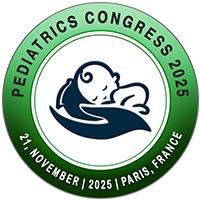
Zuzana Michnova
Comenius University Bratislava, SlovakiaPresentation Title:
Exocrine pancreatic insufficiency as a first sign in toddler with cystic fibrosis with negative newborn screening – a case study
Abstract
Introduction: exocrine pancreatic insufficiency (EPI) is caused by inadequate secretion of pancreatic enzymes or their insufficient intraluminal activation (congenital enterokinase defect) or their increased inactivation (relative pancreatic insufficiency).
Objective: a comprehensive summary of the etiopathogenesis, differential diagnosis, and treatment of EPI in children, with a presentation of a case report of a toddler with CF with a negative newborn screening, in whom EPI was the first clinical manifestation of the disease.
Methodology + results: the most common cause of chronic pancreatitis in children is CF and hereditary pancreatitis with autosomal dominant inheritance. Other causes of chronic pancreatitis are congenital anomalies of the pancreatic and bile ducts, post-traumatic lesions, hyperlipidemia, hypertriglyceridemia, hyperparathyroidism, alpha-1-antitrypsin deficiency, type 1 diabetes mellitus and autoimmune pancreatitis. Relative exocrine pancreatic insufficiency occurs in patients with significant gastric hyperacidity (Zollinger-Ellison syndrome), after gastric or small intestinal resections, or as a result of reduced secretion of secretin in inflammatory diseases of the small intestine (celiac disease, Crohn's disease). The reduction of pancreatic enzymes leads to pancreatic maldigestion of all essential nutrients, fat-soluble vitamins, calcium, and vitamin B12. The most widely used indirect test for the evaluation of exocrine insufficiency is the determination of elastase 1 in the stool.
Conclusions: cystic fibrosis is the most common autosomal recessive disease of the Caucasian population characterised by chronic multi-organ impairment. Early diagnosis and multi-professional centre care is necessery for optimal management and improved quality of life and survival of patients. The authors point out the importance of the sweat test in diagnosis of cystic fibrosis presentation of a case study of toddler with cystic fibrosis who had a negative newborn screening.
Biography
Zuzana Michnová has completed
his PHD at the age of 30 years from Jessenius
Faculty of Medicine in Martin, Comenius University in Bratislava, Slovakia.
She is the Pediatric gastroenterologist and hepatologist at Department of Pediatrics and Adolescent
Medicine, University Hospital Martin, Slovakia. She has over 183
publications that have been cited over 261 times. She initiated the use of contrast ultrasonography in
children in Slovakia.

